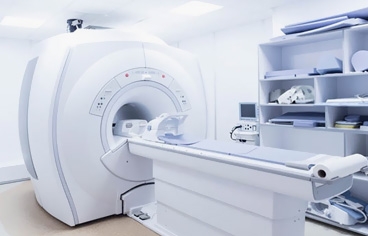What is Metabolic Syndrome?
- Home
- What is Metabolic Syndrome?

The presence of at least 3 of the following 5 conditions, each of which is a serious health problem, is called metabolic syndrome.
- Increased waist circumference: Waist circumference measured over the navel is more than 102 cm in men and 88 cm in women. In terms of visceral fat and the risk of heart disease, fat accumulated around the belly is much more dangerous than those accumulated elsewhere in the body.
- High triglyceride level: Triglyceride (free blood fats) level in the blood higher than 150 mg/dl triggers the metabolic syndrome. High triglyceride levels increase the risk of arteriosclerosis and diabetes.
- Low HDL level: HDL cholesterol is a type of cholesterol known as “good-natured” cholesterol and has a protective feature against atherosclerosis. An HDL cholesterol level below 50 mg/dl in women and below 40 mg/dl in men triggers metabolic syndrome.
- High blood pressure: Having blood pressure higher than 135/85 triggers metabolic syndrome.
- Impaired fasting blood sugar: A fasting blood sugar between 100-125 mg/dl. There is a very close relationship between metabolic syndrome and insulin resistance. Insulin resistance is a health problem that threatens heart health and needs to be treated.
What diseases does metabolic syndrome increase the risk of?
Metabolic syndrome increases the risk of cardiovascular diseases and diabetes. The cardiovascular diseases in question; heart attack, heart failure, arrhythmias (rhythm disorders), sudden death and stroke (stroke). The risk of developing heart disease in those with metabolic syndrome is 2 times higher than those without. The risk of developing diabetes mellitus in those with metabolic syndrome is 5 times higher than in those without it. It can also be seen together with dementia, asthma, reflux disease, gallstones, sleep apnea syndrome, polycystic ovary syndrome and fatty liver.
How do you know you have metabolic syndrome?
Metabolic syndrome has no symptoms and does not cause any complaints. Oftentimes, increased body weight may be the first noticeable sign. Waist circumference greater than a certain extent (abdominal obesity) is the most common finding that increases susceptibility to metabolic syndrome. Abdominal obesity is one of the 5 diagnostic criteria of metabolic syndrome. Apart from this, high blood pressure (hypertension), high triglyceride (free blood fats), high benign (HDL) cholesterol or slightly high blood sugar level can only be detected by examination or medical examinations. Therefore, it is the most practical and beneficial behavior to pay attention to your body weight and waist circumference. In addition, since hypertension is not a symptomatic disease, it is useful to regularly measure your blood pressure.
Who is at high risk of metabolic syndrome?
Metabolic syndrome is more common in people who are overweight, exercise less, and have an unhealthy diet. In addition, those with a family history of diabetes and high blood pressure are at higher risk of metabolic syndrome. Studies conducted in our country show that our society is getting fatter; reveals that abdominal obesity and the risk of metabolic syndrome increase rapidly, especially in young-middle-aged women. In our country, 31% of men and 43% of women have metabolic syndrome.
What should you do against metabolic syndrome?
Risk factors that cause metabolic syndrome are closely related to each other. Therefore, it is necessary to consider the treatment as a whole.
- Make sure you are at the appropriate weight. If you are not at a healthy weight, lose weight as soon as possible and take care to stay at the appropriate weight. With every 10 kg you give, your blood pressure will go down by 10 mmHg.
- Exercise at least three days a week, at least 30 minutes each time, with brisk and regular movement.
- Reduce your salt consumption. Do not consume more than 4-5 grams of salt per day.
- Track your waist circumference. Remember; Your waist circumference is not only aesthetic, but also your health measure.
- Have your blood pressure measured regularly. Hypertension is almost always an insidious disease. Do not be late for treatment.
- Metabolic syndrome or each of its risk factors often requires medical treatment. Do not be late, especially if you have a family history of heart disease or diabetes.
Order Blogs
-
 What is Cybernix Therapy?
What is Cybernix Therapy?
-
 What is Endometriosis (Chocolate Cyst)? What are the symptoms? How to Treat?
What is Endometriosis (Chocolate Cyst)? What are the symptoms? How to Treat?
-
 Colon Cancer (Symptoms, Stages, Treatment)
Colon Cancer (Symptoms, Stages, Treatment)
-
 Influenza (Flu) in Children
Influenza (Flu) in Children
-
 Stomach Cancer Symptoms and Treatment Methods
Stomach Cancer Symptoms and Treatment Methods
-
 What is Lymph Node Swelling? What Are The Reasons?
What is Lymph Node Swelling? What Are The Reasons?
-
 When to Use Antibiotics? What are the side effects? What is Antibiotic Resistance?
When to Use Antibiotics? What are the side effects? What is Antibiotic Resistance?
-
 What is Muscle Spasm?
What is Muscle Spasm?
-
 What is MRI? How to Take an MRI with Medication? Is It Harmful?
What is MRI? How to Take an MRI with Medication? Is It Harmful?
-
 What are the Causes of Diarrhea and Vomiting? How to Treat?
What are the Causes of Diarrhea and Vomiting? How to Treat?
